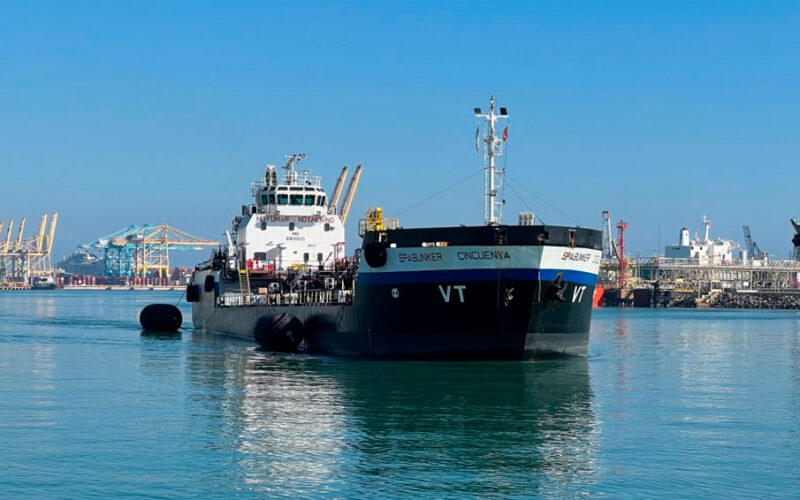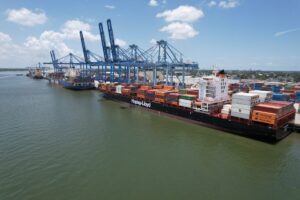Cepsa, a Spanish maritime transport energy supplier, has undertaken the largest supply of second-generation biofuels to date at the Port of Barcelona.
This operation in the Mediterranean aboard a 350-metre-long containership operated by Hapag-Lloyd represents the energy company’s first endeavour in Barcelona.
The biodiesel supplied comprises a 24 per cent sustainable component, which is reported to reduce the emission of 2,860 tonnes of CO2 – comparable to growing 34,300 trees. This biofuel is made from leftover cooking oils.
Currently, the energy company can reportedly supply these sustainable fuels by barge in the Port of Barcelona and the area of the Strait of Gibraltar, and by tanker in all the ports in which it operates.
READ: Maersk, Renfe and Cepsa conduct first 2G bio-fuel test in Spanish rail transport
According to Samir Fernández, Director of Marine Fuel Solutions at Cepsa, said: “Second-generation biofuels can be used in ships without the need for modifications to their engines, and they have a high potential for reducing CO2 emissions compared to conventional fossil fuels, achieving a reduction of up to 90 per cent, which makes them an ideal immediate solution.
“That’s why we want to make them available in all the ports in which we operate and lead their production in this decade to help our customers meet their own decarbonisation challenges.”
The use of biofuels enables shipping companies to stay ahead of the objectives of the European Union and the International Maritime Organization (IMO).
READ: Yara Clean Ammonia, Cepsa supply clean hydrogen to Europe
Specifically, the European Commission’s Fit for 55 package includes the ‘Fuel EU Maritime’ legislative initiative, which aims to reduce greenhouse gas (GHG) emissions intensity in maritime transport by 2 per cent in 2025, 6 per cent in 2030 and 80 per cent in 2050, compared to 2020 levels, through the use of sustainable fuels.
Concurrently, the IMO has recently updated its strategy for reducing GHG emissions in maritime transportation, establishing ambitious targets that will incrementally rise from 20 per cent in 2030 to achieving net-zero emissions by 2050, compared to 2008 levels.
Cepsa’s 2030 plan, ‘Positive Motion’, intends to promote the decarbonisation of heavy transport (air, sea, and land) through the creation of green molecules.
With a production capacity of 2.5 million tonnes per year and 2 gigawatts (GW) of electrolysis capacity, the company intends to be the main biofuel producer in Spain and Portugal by 2030.









